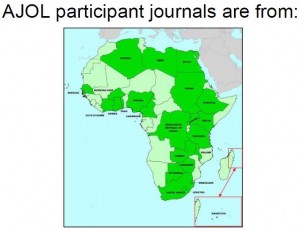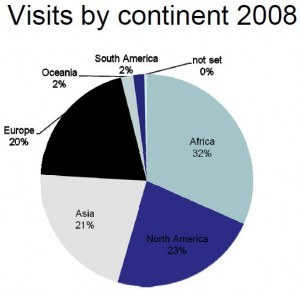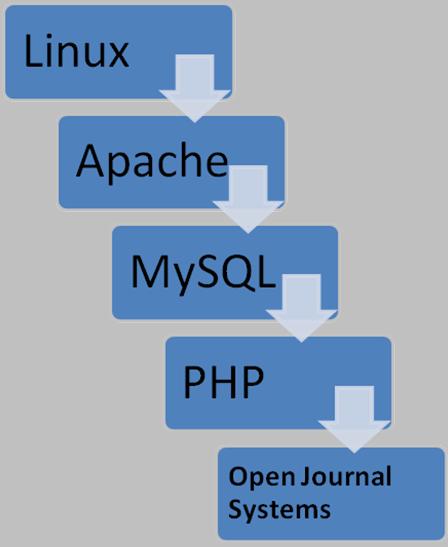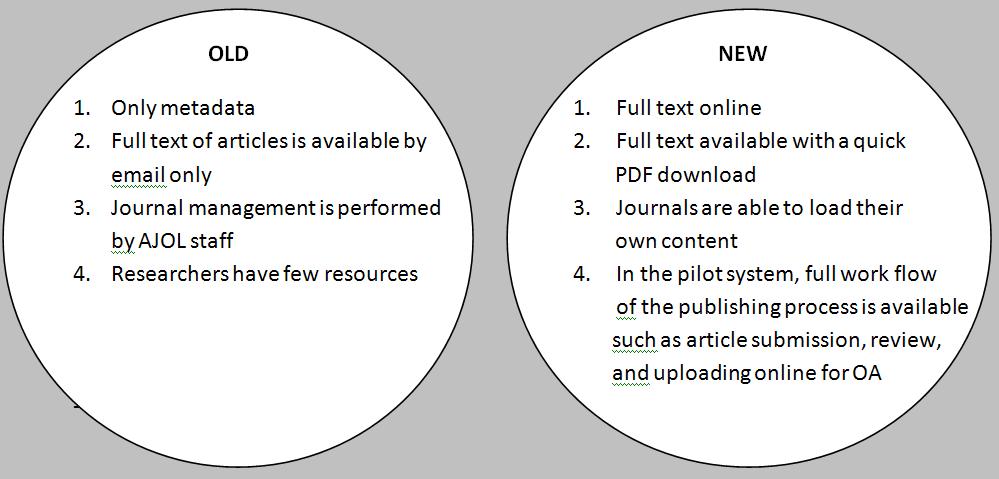Session: Scholarly publishing in Africa: the online potential, the online challenge
Presenter: Samuel Smith-Esseh (University of British Columbia)
Abstract: To improve our current largely anecdotal understanding of scientific publishing in Africa, this empirical study was conducted, involving active participants within the scholarly community – authors, editors, publishers, graduate students, faculty, scientists, librarians, IT staff and university administrators. The data is reviewed in light of the opportunities arising from technological progress, particularly the Internet … and how this speaks to the all important issue of expanding knowledge resources in Africa to the benefit of the global scholarly community.
Overview
Smith’s presentation introduced findings from a quantitative study into journal publishing in Africa, where African journal editors and publishing teams gathered at several universities throughout Africa to contribute as research participants. The numbers illustrate the many challenges which characterize the academic journal publishing environment in Africa. Smith concluded that a key priority is to look at the issue of cost: there are a variety of economic models improvised in Africa, but no standard effective model in use. Despite the financial constraints, there are also promising developments, namely, the early impacts resulting from the advent of the internet, as shown for instance, by high numbers of online journal reading and the cost-saving opportunities presented by online publication.
Snapshot of the Issues
– African scholarship is poorly distributed and poorly assessed
– A major problem lies in the regularity of journal publication: there are frequently breaks in publication schedules (75% of journals in the study have had a break in publication). The three top reasons for breaks included:
1. Financial constraints
2. Perception of human resources
3. Lack of article submissions
– A common category for journals included ‘campus-wide’, journals that multi-disciplinary, circulated within a university, because the university is not able to sustain departmental or disciplinary journals.
– Factors in authors’ choice of which journal to publish include appropriate subject scope (83.%), institutional legitimization (77.8%), international journal (68.7%), prestige of journal (44.4%); others.
– Local publishing is greatly impacted by the northward-focus of African authors. There is pressure on African academics to publish internationally, thus local publishing industries are neglected.
– Editorship in Africa is male-dominated.
– There are no professional training opportunities or systematic training in editorial management and in the peer review process. Some other challenges in reviewing journals include an overburdened academic research community and a lack of subject area expertise within some disciplines.
– Many institutions are not buying into the open access for a variety of reasons, which include technical challenges, human resource issues, quality assurance, ideological reasons, economic challenges, and regulatory and policy challenges.
Economic challenges
– Subscription rates simply put journals out of reach of many African scholars: rates are equal to what some professors earn as a salary.
– Most journals depend on university support and are published within the university.
– There is a dependence on international sponsorship
– Print production is very expensive in Africa (highest costs include: staff, printing, postage, editorial expertise, editors’ stipend, photocopying, etc). However, the internet has the potential to greatly minimize some of these costs.
– Connectivity is gradually improving in Africa, yet the cost remains prohibitive.
Where does potential lie?
– Significantly, Smith’s study found the primary incentive for the continued publication of journals when there is no economic incentive to be reputation. There is thus an important level of drive evident, something which can resource further developments.
– There is growth in circulation numbers of scholarly journals.
– There has similarly been a perception among the editors of an increase in submissions (84.4%), while 10.4% perceived a decrease in submissions, and 5.2% were not sure.
– Another study found almost 0% of submissions to African journals came from outside of African countries. However, because of the internet, this study found that that is changing. African journals are becoming more visible. Editors perceived an increased international readership (41.8%).
– AJOL confirmed this finding, when their data was consulted, to confirm what Smith found in his study. AJOL’s geographical distribution of document deliveries shows that people from outside the continent are beginning to read journals published in Africa. There has been a 1,343% increase of readership in Asia over one year.
– Academic reading habits are showing the impact of the internet: online journals had the highest readership among the study participants, suggesting their currency as the main information source for scholars.
Further Reading:
The Scholarly Journal in the Production and Dissemination of Knowledge on Africa: Exploring Some Issues for the Future (2001) S.A. Adebwole
African Journals Online: improving awareness and access (2002) D. Rosenberg
Participation in the global knowledge commons (2005) L. Chan and S. Costa
Transforming Access to Research Literature for Developing Countries (2005) B. Kirsop and L. Chan





